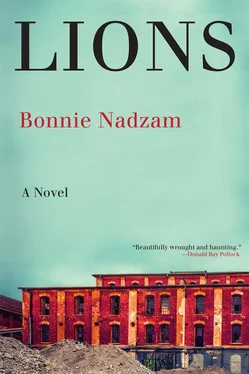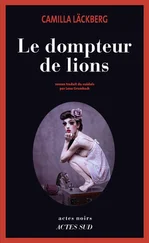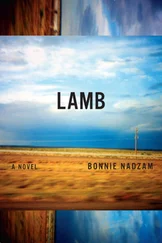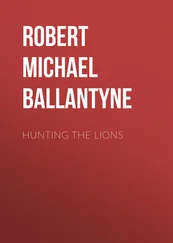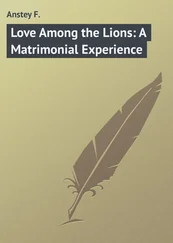After they finished their whiskeys she convinced Gordon to drive her to the overbright, overstuffed grocery, but afterward he insisted on going back to his dorm.
“You just want to sit in your room?”
He shrugged. “Tired, I guess.”
“Everything you could possibly want or need is here, Gordon.”
“Need for what?”
It seemed to Leigh over the course of the next two days, then three, that Gordon was being perversely obstinate, and she began to feel a vague distaste — an involuntary aversion — to everything in him that reminded her of John Walker or of home: his old shirts, the smell of Lava soap, the slow, careful, almost stupid look on his face when he was introduced to someone, or considering something new before him. The silence when others greeted him cheerfully, asked him how he liked it here, asked him how he was.
“Don’t you think about how people might see you?”
“No.”
“You should.”
“Why? How do I look?”
It wasn’t as though he were ignoring the physical world. He heard and saw things that escaped Leigh’s attention — a long insect snapping its matchstick legs on the screen of a house they passed; a hawk above the soccer field diminished to a pinprick circling in the blue overhead; a whistling that came from a little yellow bird in the tree branches above them, which for Leigh had dissolved into the music of the restaurant speakers. He seemed sharper and older than he’d been in springtime, like a seasoned instrument both highly strung and perfectly tuned. But the effect of all this was disturbing. He was so quiet, and now so thin, and seemed to look not past the people and lights around him, but through them. He looked at Leigh as if he were not quite sure what she was. If the words between them had once been their map to the city on a hill — to the life they were going to make together here, and then later, when they’d graduated — Gordon was erasing each word, one at a time, as if his very existence described a vacancy.
In the next few days he accompanied Leigh around campus and through town, but whenever they met someone, or Leigh struck up a conversation — with a coffee barista, with the hostess at a restaurant where they had lunch — he seemed to retreat within himself. Everything he saw — girls in new blue jeans and bright T-shirts and jackets, the colored front windows of food co-ops and bistros and dress shops — seemed to feed the inclination. Every sentence he spoke terminated in a certain soft and low intonation meant to end the conversation. He’d cross his arms over his chest and look away, only just managing to avoid overt impoliteness. People noticed. They speak solely to her — they seemed not even to see him.
If on the next evening, and the evening after that, anyone had looked in the direction of his room from the athletic field, they would have seen his silhouette sitting behind closed curtains. Outside they laughed and slammed car doors. There was music on the green. It was a radio or it was a concert or it was a small student band. A little farther in the distance, behind a line of trees, it was a crowded bar with swings instead of bar stools. They were on their way to somewhere they could dance, knowing what the day was worth and how much they had to spend and digging in their pockets for every last penny while he sat inside in his chair. Sunlight galloped past his window. The moon rose. The stars marched overhead.
Every afternoon of the first week of classes Leigh found him there, in his room. She began to notice none of his things had moved on his desk — his toothbrush, his backpack, his calculus book — from the day before.
Three weeks into classes, she found him in John’s old chair finishing a Western that was falling apart in his hands, and already on his second whiskey, which, like his father, he took slowly. His unmade bed. His unchanged clothes.
“It’s like you’re not even here, Gordon.”
“I’m right here.”
“It’s like you’re not even trying.”
“Leigh,” he said. “Please. Be patient with me.”
“You shouldn’t be doing this,” she said, and gestured around them. “It’s no help.”
“I should be going out.”
“Yes.”
“Making plans.”
“Yes.”
“Having fun.”
“Yes.”
Her face was flushed and she stood and looked out the window. The girls were gone and the soccer players were gone. The grassy field was a soft navy blue.
“I’m not exactly feeling like myself,” he said. “I guess it’s not what you had in mind.”
She took a breath and turned back to him. “What are you reading?”
He held it up. “Dad read it to me once when I was sick. It took me forever to find it.” It was held together by a rubber band. The red-eyed horse rearing, the man in the duster, the coiled snake, the beautiful woman wrapped in turquoise ruffles. He closed the book and set it aside.
“Are you even leaving your room? Are you sick?”
“I’m fine.”
“How was class today?”
He shrugged.
“Gordon.” His eyes were glassy, and his teeth looked large — or like there were more of them than she’d remembered. Out in the hall a door opened, and the sound of music on a stereo swelled and faded as the same door slammed shut. “There’s a city out there. Restaurants. Museums. A great big library. Two of them. Trees. Beautiful houses. Good people. Books to read. Good teachers. Kind people. Have you seen any of this? No. You don’t want to see any of it.”
“I guess you’ve got some of that right.”
“You’re not going to class,” she said.
“Why do you say that?”
“I looked for you today.”
“Why?”
“Because, stupid.”
Outside in the hallway, the door opened again and the music flared to life.
“Gordon. Listen. It’s ‘Red River Valley.’ What are the chances? Someone else is a throwback, too.” She suddenly felt bright, felt the broad sun of home across her face and shoulders and she reached for his hand. “Come on, it’s a sign. Let’s dance.”
“I don’t want to dance.”
“Come on, it’s a sign!”
“Stop.”
“Dance with me.”
He pulled his hand away. “Leigh,” he said sharply. “Please.”
She sat and they were still, not talking, for a full minute.
“I’m sorry,” he said. “I’m not being the best kind of man right now.” He set his hands flat on his knees. “I’m not the best man right now.”
“You don’t have to say it twice.”
“Please be patient.”
“You already said.”
He shook his head. “You go off so quickly,” he said softly. He looked up at her. “You went off so quickly.”
She blushed and turned away. A moment later she put her hand on the side of his face, and brought her lips to his.
He pulled his face away.
Leigh crossed her arms and leaned back. “Something’s wrong with you.”
“Is it.”
“I think you need help.”
He said nothing.
“Like a counselor.”
Nothing.
“I mean, for one, your parents.” She waited.
He nodded once.
“And losing the shop. Moving away from home.”
“I’m not losing the shop.”
“OK.”
“And I’ll go back.”
“Gordon.”
They both pictured Lions then. The pigweed, foxtail, purslane, and countless unstoppable weeds in a spiny brown hide stretching from their front doors to the ditch on the side of the dusty road. All the stock barns collapsed in the weeds, rusted coils of pasture fences unspooled across the dirt. Jefferson Street, empty. Jorgensen’s place, empty — the two-story white house that had always been lit up.
“Then won’t you talk to someone?”
Читать дальше
